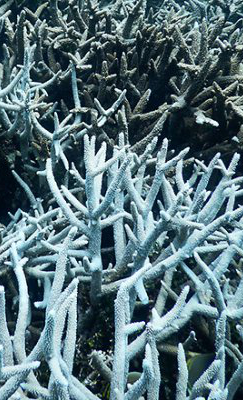GBR bleaching again
 The Great Barrier Reef has undergone its fifth mass bleaching event in eight years.
The Great Barrier Reef has undergone its fifth mass bleaching event in eight years.
Summer of 2024 has seen a significant escalation in the crisis facing the world's largest coral system, according to Terry Hughes, a distinguished professor at James Cook University.
Dr Hughes’ new article for The Conversation notes that the reef has now experienced seven extreme bleaching events in the last 26 years, including those in 2016, 2017, 2020, 2022, and now 2024.
“The most conspicuous impact of unusually high temperatures on tropical and subtropical reefs is wide-scale coral bleaching and death,” he said.
The bleaching events are exacerbated by prolonged heat stress, measured in ‘degree heating weeks’ (DHW).
This summer, DHW levels on many parts of the reef have reportedly reached 10–12 units, signalling widespread damage and coral mortality.
Recent aerial surveys of over 300 individual reefs within the Great Barrier Reef show many are experiencing bleaching after a summer of heightened sea temperatures.
The Great Barrier Reef Marine Park Authority says it is currently assessing the damage, which is expected to vary across the reef.
Dr Hughes and environmental advocates stress the urgent need for global greenhouse emission reductions to protect the Reef and other coral systems worldwide.
“The only long-term way to protect corals on the Great Barrier Reef and elsewhere is to rapidly reduce global greenhouse emissions,” Hughes says.
The Australian government has pledged increased funding for reef conservation and stronger emissions-reduction targets, but as the climate continues to warm, the future of the Great Barrier Reef hangs in the balance.







 Print
Print